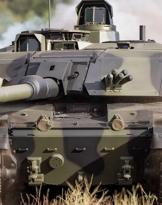The United States will line up around 250 media including Abrams tanks, Bradley combat vehicles and artillery in Estonia, Latvia, Lithuania, Poland, Romania and Bulgaria. This equipment is also stationed in Germany.
"All these countries have agreed to host our forces that will move across Europe for training and exercises."
The crisis in Ukraine highlighted the need for NATO, led by the US, to show solidarity with its most vulnerable partners.
The United States and NATO, immediately after the annexation of Crimea by the Russians last year, intensified their exercises in the Baltic countries, Poland and other Eastern European countries. Moscow's support for philosopher-makers in eastern Ukraine has done nothing but increase tensions in a region that has become a powder keg.
Specifically, the US Army Third Infantry Division, trained in Eastern Europe, 'sold' 120 permanently to the new emergency response brigade which will be fully operational by the summer.
To be realistic, the 230 American heavy vehicles located along the borders of Eastern Europe, certainly cannot frighten the Russians. The latter have at least 150 thousand men close to Ukraine and at least 1500 heavy tanks. In short: Russian troops outweigh the forces of all the Baltic countries, but NATO's signal is still strong.
Moscow, however, threatened to place missiles with nuclear warheads in Kaliningrad, which borders on Poland and Lithuania. A few hours ago, NATO officially confirmed the creation of a crisis force that, within a few months, will reach the capacity of 40 thousand men.
The United States will guarantee a powerful task force of 5mila soldiers, including special departments, able to respond to crisis scenarios in less than 48 hours.
Franco Iacch
(photo: US DoD)












